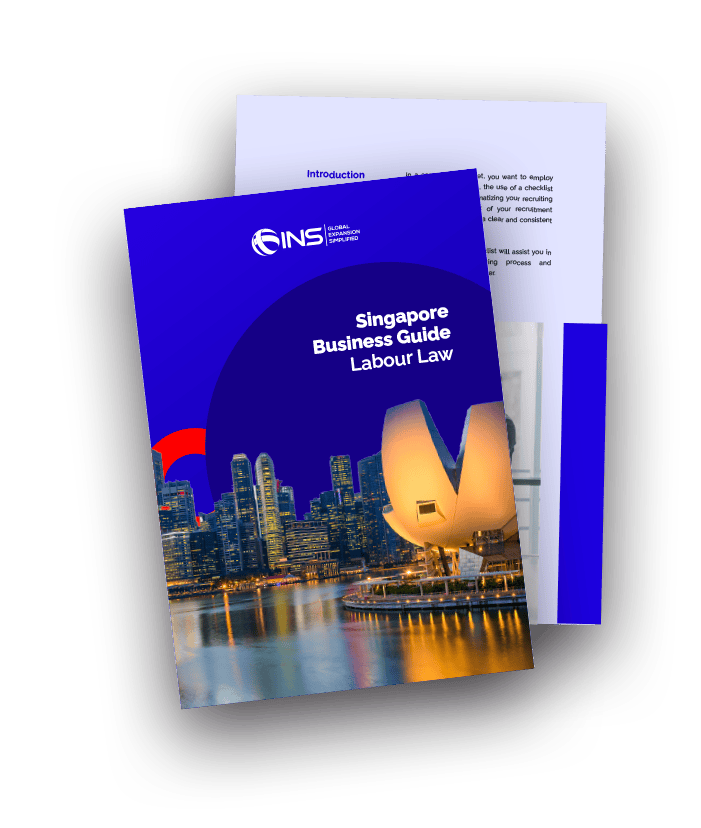Employment guidelines are different in every country. Companies that want to expand overseas must consider local laws and business practices to establish themselves in a new market effectively. If you don’t pay close attention to labor law updates or bills passed, you could quickly find yourself having to offer high severance pay in Singapore or fees and fines for compliance errors.
Singapore does not have any legislation around mandatory severance pay. However, it is still standard practice to give employees compensation when dismissing them. Employers cannot dismiss employees at will, and it’s required that they provide a valid reason for ending a contract.
To help, we’ve put together this article that details the conditions for termination and standard severance pay in Singapore.

Tired of scrolling? Download a PDF version for easier offline reading and sharing with coworkers
In a hurry? Save this article as a PDF
Tired of scrolling? Download a PDF version for easier offline reading and sharing with coworkers.
Fill up the form below 👇🏼

Termination in Singapore
There are three main ways an employment contract may be terminated in Singapore:
1. The Employer Wants to Terminate the Contract
This may be due to:
- An employee’s misconduct (i.e. giving away trade secrets or confidential information) or breach of contract rules;
- Because the company is downsizing or shutting down;
- Because the employee’s position or type of employment has become redundant;
- The employee is longer suitable for the task at hand.
2. The Employee Wants to Terminate the Contract
Reasons for this include:
- The employer has breached their contract including failing to pay wages or make health insurance contributions accurately;
- The employee wishes to resign;
- The employee decides to retire.
3. The Contract Ends Naturally

Mass Layoffs
Termination Due to Misconduct
In the case of termination due to misconduct, the employer should inform the employee and give them a chance to respond. The employer may also suspend the employee during this time, but an amount of time no longer than a week. During this week, the employer must pay the employee at least 50% of their salary as paid time.
The employee may be terminated without notice or compensation if misconduct is confirmed to have broken the terms of employment.
If there is no proven misconduct, the employer must reimburse the employee for the rest of their salary lost during the suspension period.
In general, laws in Singapore prefer termination to be done in a way in which both employee and employer agree to an amicable end of the employment agreement.
Check Our Singapore Labor Law Guide
Learn how the Singapore law is applied in all aspects and situations, from an employer and employee perspective

Notice Periods
The length of notice periods is generally stipulated in the contract and is the same for both employer and employee. Should a notice period not be written explicitly into the agreement, the employer must adhere to the minimum requirements in the Employment Act.
Depending on the time worked at the company, the mandatory notice period ranges from 1 day to 4 weeks. This time is shorter if the employee is still in their probationary period. However, this is the same for both full-time and part-time employees.
An employer can terminate the employment relationship immediately if they pay the employee compensation. This must be equal to daily wages that would have accrued during the notice period.
Severance Pay in Singapore
There is no law requiring severance pay in Singapore. However, most businesses still offer severance packages to avoid dealing with a disgruntled employee. Any severance payment should be explicitly stated in the contract.
Typically, severance pay is 2 weeks to 1 month of wages per year of employment. Employees will usually also receive payment for their last work day and any accrued annual leave payments. Depending on the company and industry, other benefits or compensation may also be included in the severance package.
Taxation of Severance Pay
According to the Inland Revenue Authority of Singapore (IRAS), severance pay is considered a capital receipt and is not taxed.
To find out more about how lump-sum payments are taxed in Singapore, see this article.
How INS Global Can Help
Setting up in a new country and market involves a great deal of different management and organization skills. You want to ensure that your employees are satisfied with their working conditions. But more than this productive, and secure employees bring your company closer to its market goals.
Sometimes you may have to terminate employees or end an independent contractor agreement. Should you not go through the correct steps to termination, you may find yourself requiring the services of a law firm to ensure an employee agrees to their termination.
INS Global understands the complexities and challenges of overseas expansion, and we are here to facilitate your experience and make it easier, faster, and risk-free.
With over 15 years of experience partnering with companies worldwide, INS is uniquely skilled in global HR services and meeting your payroll and recruitment needs.
Our legal advisors can take care of all aspects of compliance and local labor laws. Additionally, our global mobility team is always on hand to advise you on the best local business practices and customs. That way, you can integrate your team smoothly into the new market.
Contact us here today to find out how to improve your business experience in Singapore.

SHARE